Kind and fluffy: A 13-year-old boy from India suffers from "werewolf syndrome"
Categories: Asia | Children | Health and Medicine
By Pictolic https://pictolic.com/article/kind-and-fluffy-a-13-year-old-boy-from-india-suffers-from-werewolf-syndrome.htmlIt is difficult to accept yourself if you are radically different from everyone around you. It is especially difficult for children. This Indian boy has repeatedly become the object of ridicule of his peers, but, thanks to the love and care of his family, he continues to live like all other children: he goes to school, plays football and is friends with other teenagers.
Why excessive hair loss occurs and whether the boy has any hope of recovery — find out from our material.
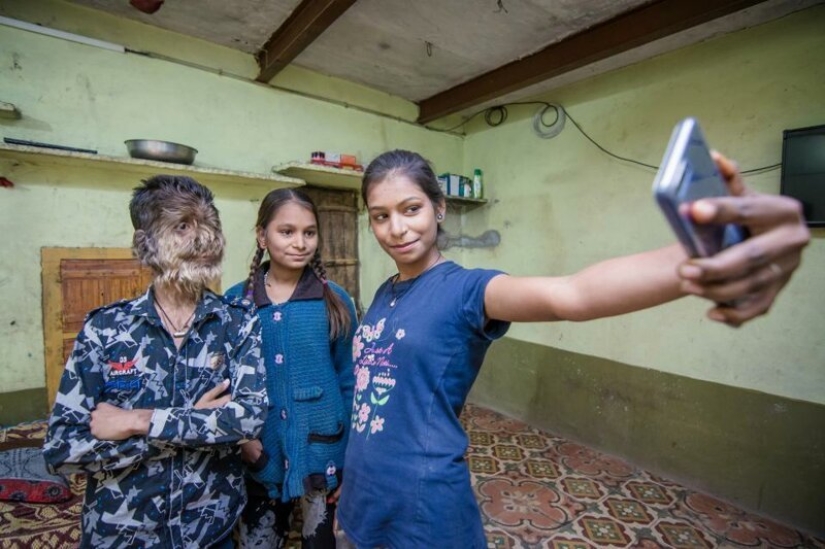
13-year-old Lalit Patidar from India would like to be like everyone else and become, in the future, a policeman. He wants to help his family financially and thank them for everything they have done for him.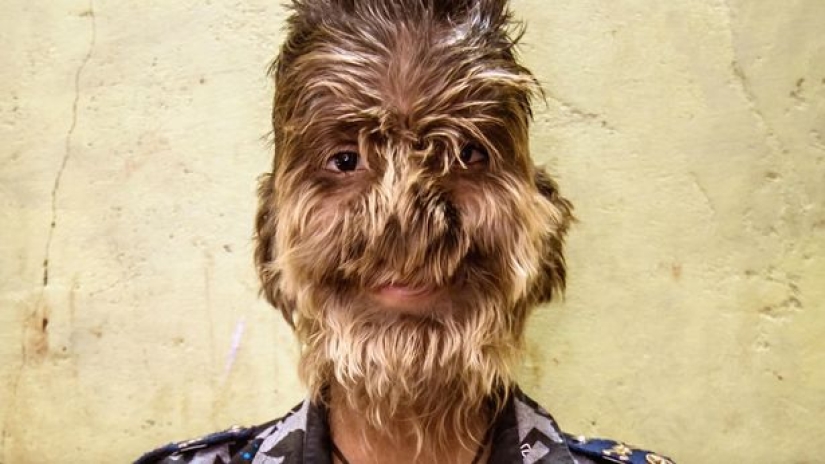 The student suffers from "werewolf syndrome". He says that school bullies even throw stones at him and call him a "monkey". But all he wants is to make friends with them.
The student suffers from "werewolf syndrome". He says that school bullies even throw stones at him and call him a "monkey". But all he wants is to make friends with them.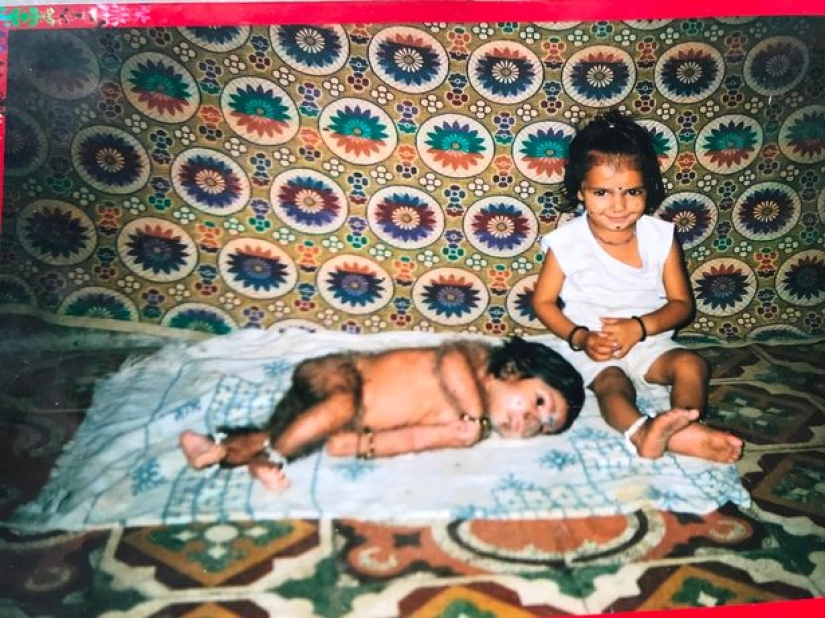 The boy was born with hypertrichosis syndrome, a condition where abnormal hair loss occurs on the face, hands and other parts of the body.
The boy was born with hypertrichosis syndrome, a condition where abnormal hair loss occurs on the face, hands and other parts of the body.
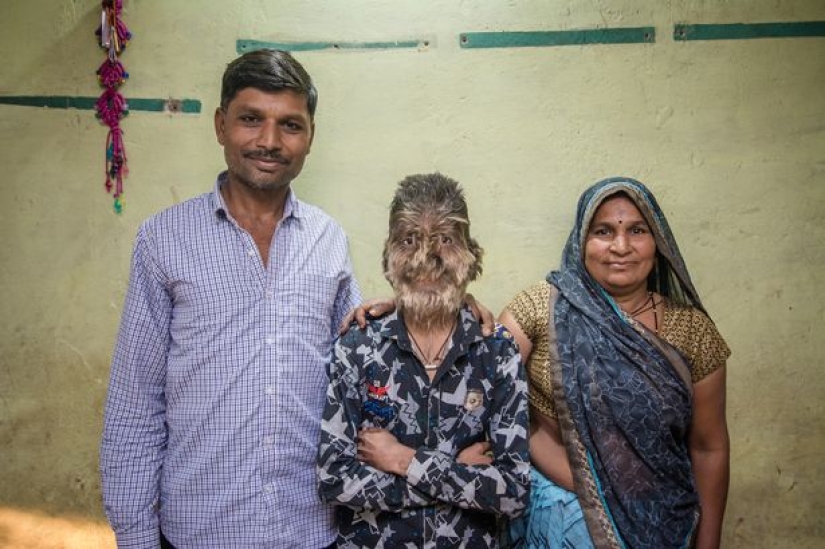 A boy with his parents
A boy with his parents
Lalita's mother, 42-year-old Parvatibai Patidar, is an ever—busy housewife who has to take care of 14 family members, including a boy, his five sisters and grandparents.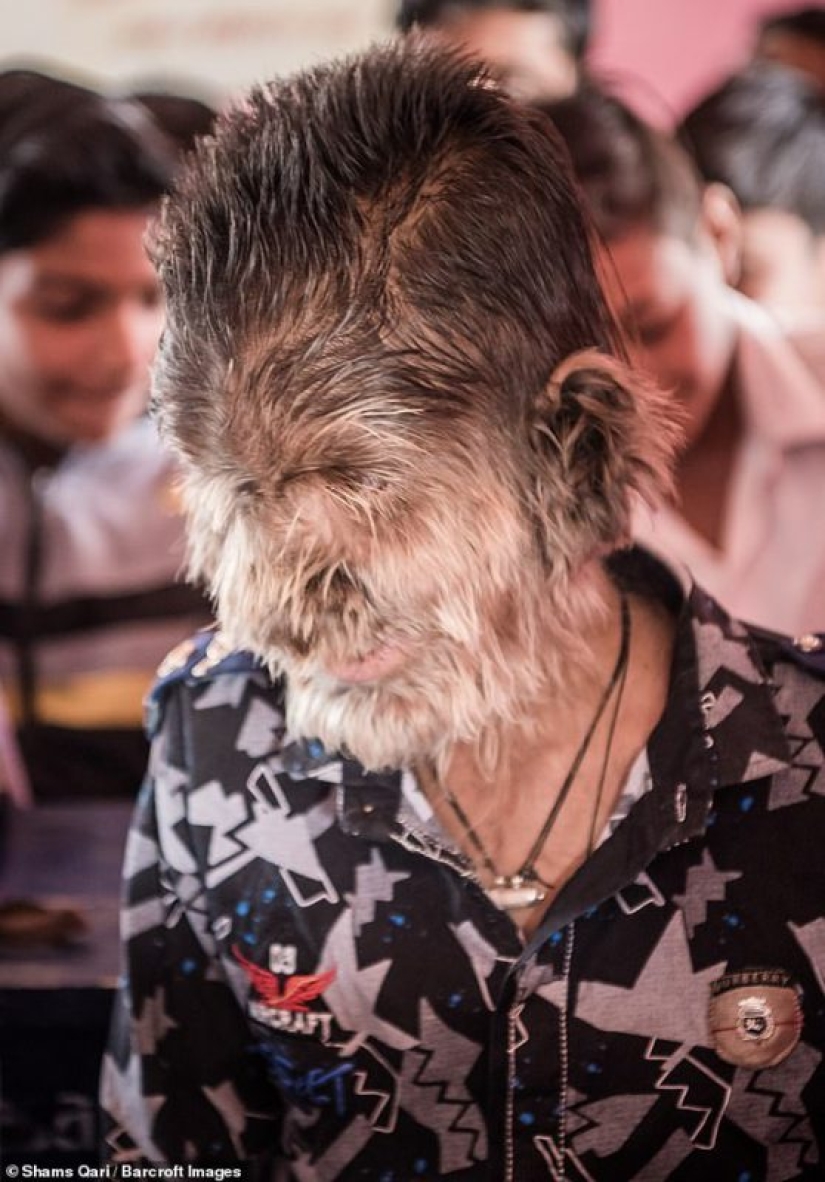 When the hairy baby was born, the mother almost lost the power of speech. The parents immediately turned to the local pediatrician, who simply shaved off the hair on the baby's body and said that there was no cure for this.
When the hairy baby was born, the mother almost lost the power of speech. The parents immediately turned to the local pediatrician, who simply shaved off the hair on the baby's body and said that there was no cure for this.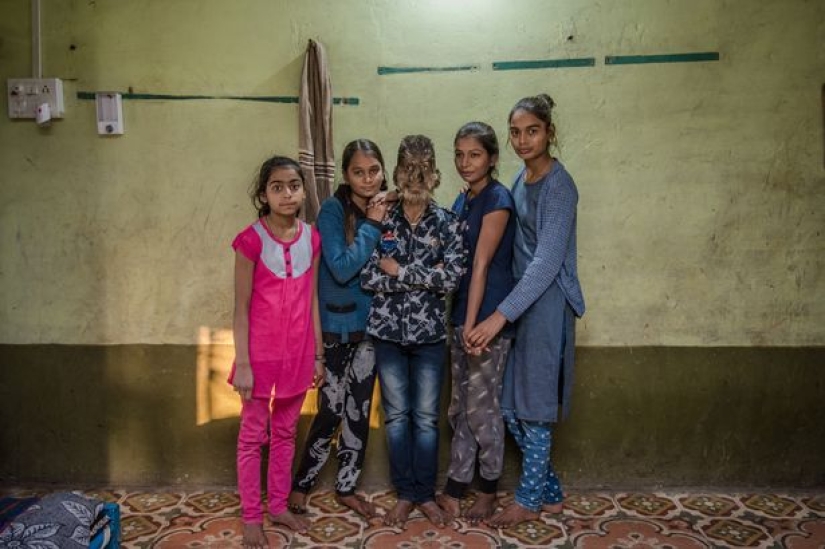 Lalit with her older sisters
Lalit with her older sisters
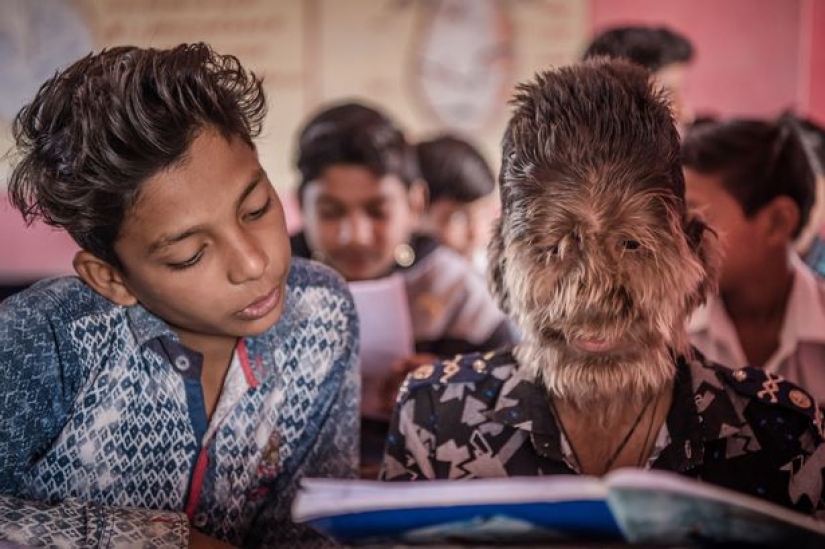 Despite the fact that the teenager was used to his body, he had problems with breathing and vision, due to an excessive amount of facial hair. His parents tried to treat the disease many times, but all attempts were unsuccessful.
Despite the fact that the teenager was used to his body, he had problems with breathing and vision, due to an excessive amount of facial hair. His parents tried to treat the disease many times, but all attempts were unsuccessful.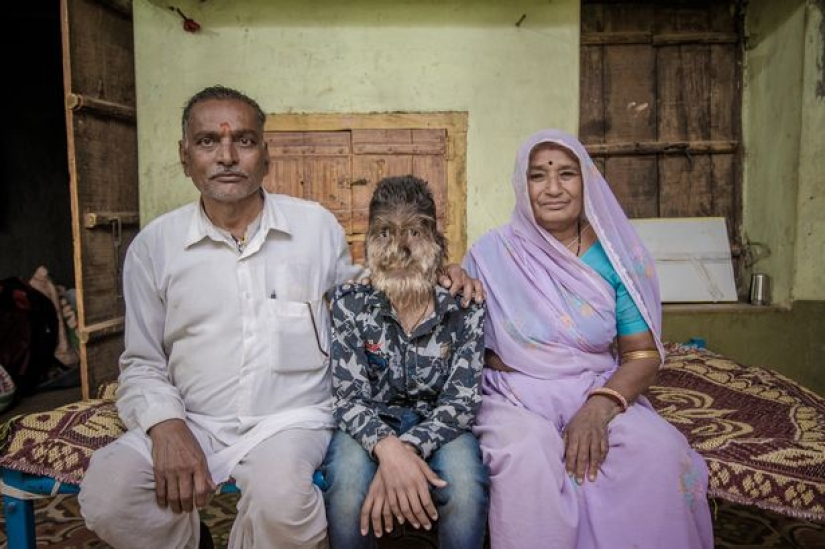 Hairy boy with grandparents
Hairy boy with grandparents
Lalit's dad, a 45-year-old farmer, Bankatlal Patidar, says that when their son was two years old, he took him to a large hospital in Baroda, where the boy was examined by a whole team of doctors. They all said that there is no cure for this disease.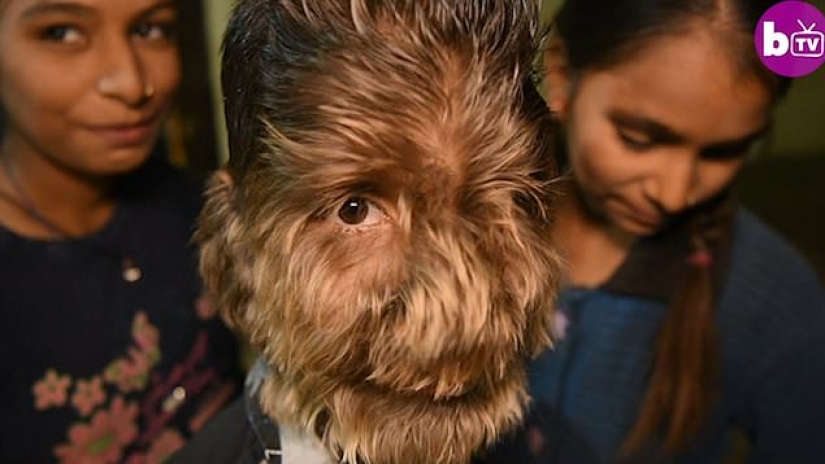 Passers-by often stare at the hairy teenager, especially when he leaves his native village. But, the boy does not pay attention to this, because his family and comrades protect him during such cases.
Passers-by often stare at the hairy teenager, especially when he leaves his native village. But, the boy does not pay attention to this, because his family and comrades protect him during such cases.
In the future, the guy wants to become a policeman to fight criminals and earn money for his family. He constantly thanks his parents for everything they do for him.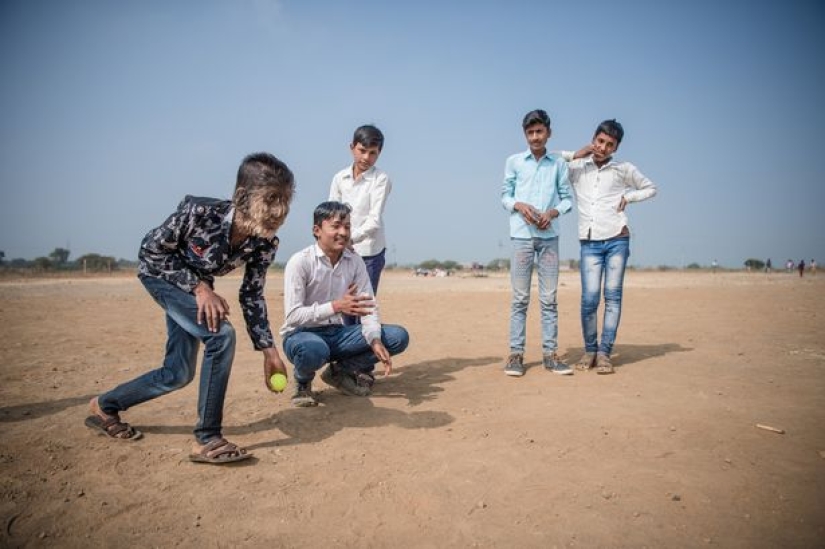 The boy studies well at school and loves to play sports. Classmates say that, at first, they were shocked and frightened by the appearance of an unusual schoolmate, but, over time, they became friends with him.
The boy studies well at school and loves to play sports. Classmates say that, at first, they were shocked and frightened by the appearance of an unusual schoolmate, but, over time, they became friends with him.
Teachers also speak positively about Lalita and say that the children are used to him and treat him like all other classmates.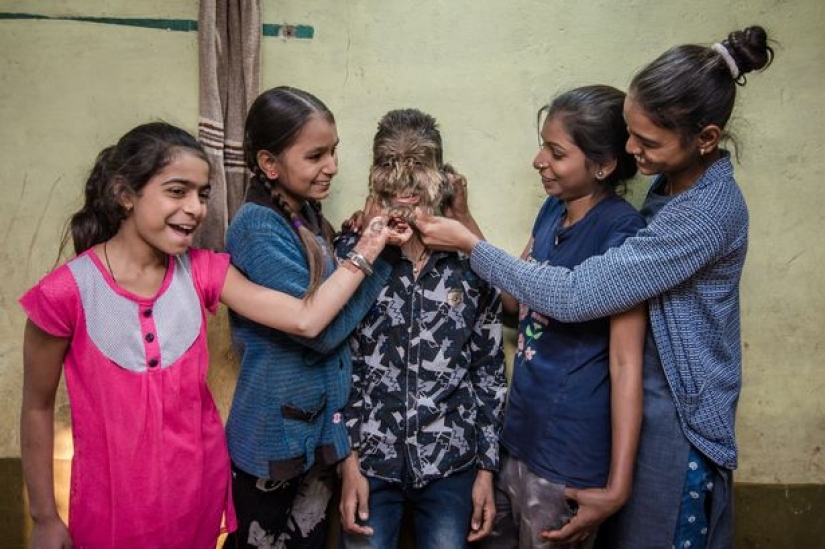 Problems with appearance cause a lot of discomfort, especially in adolescence. The syndrome that an Indian boy suffers from could ruin his life and make him hunted and insecure, but the love of family and friends helps him live a full life. There are no medicines for the "werewolf syndrome", but the love of loved ones heals the soul, and this is the most important thing.
Problems with appearance cause a lot of discomfort, especially in adolescence. The syndrome that an Indian boy suffers from could ruin his life and make him hunted and insecure, but the love of family and friends helps him live a full life. There are no medicines for the "werewolf syndrome", but the love of loved ones heals the soul, and this is the most important thing.
Keywords: Illness | India | Treatment | Boy | Unusual people | Family
Post News ArticleRecent articles

It's high time to admit that this whole hipster idea has gone too far. The concept has become so popular that even restaurants have ...

There is a perception that people only use 10% of their brain potential. But the heroes of our review, apparently, found a way to ...
Related articles

Photographer Supernaw das was born in Calcutta, studied at the School of visual arts in new York. For his graduation project, he ...

To eat a bowl of chicken soup when you have a fever and runny nose — a great idea, but just as some foods help to get better ...

Because of the coronavirus pandemic, many of us feel tired and irritated. And if fatigue occurs due to stress and lack of sleep, ...

New Year's is a time to surprise and delight loved ones not only with gifts but also with a unique presentation of the holiday ...